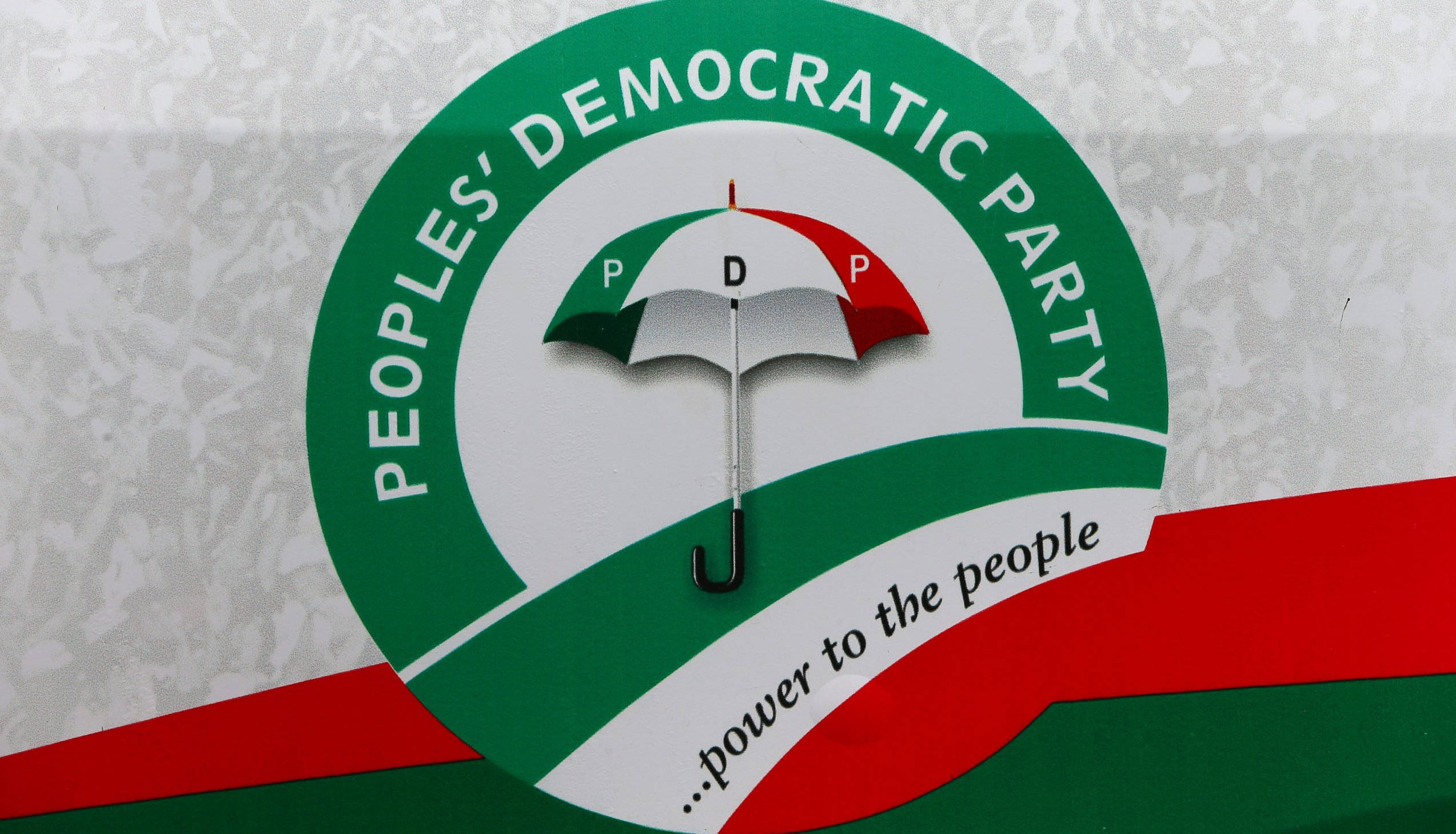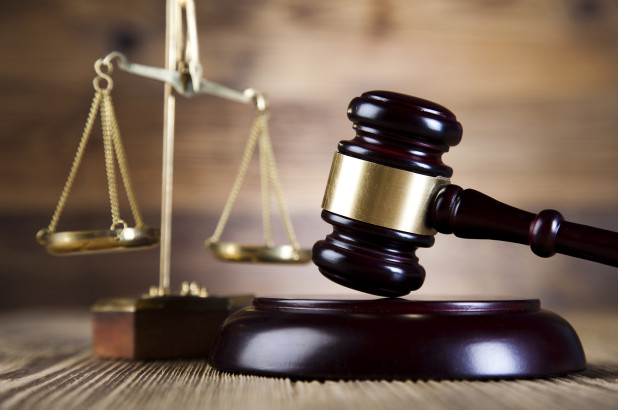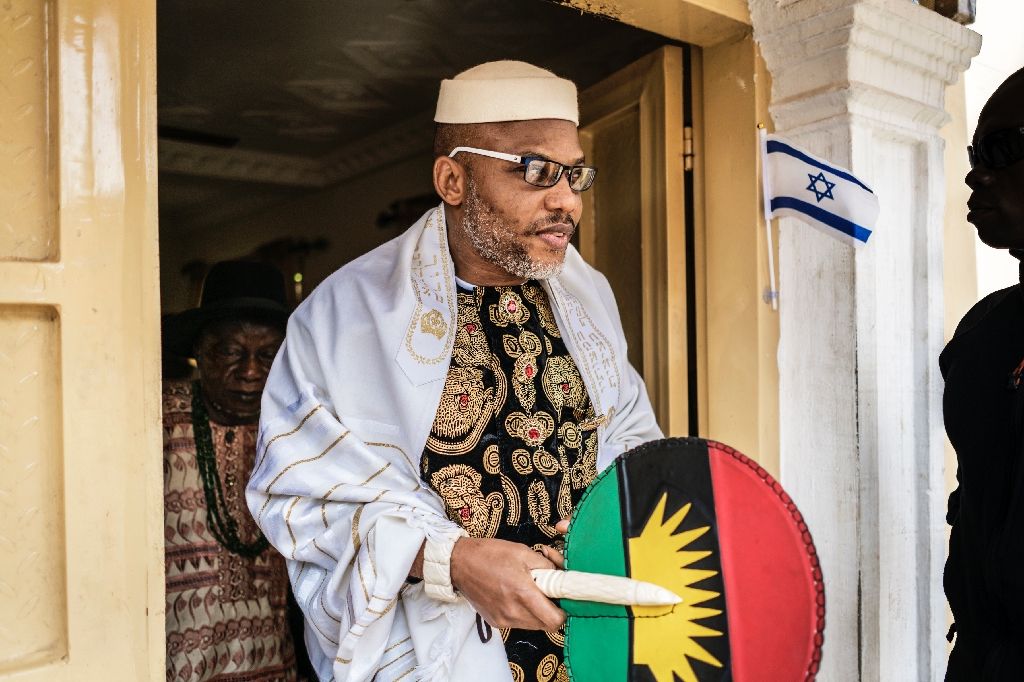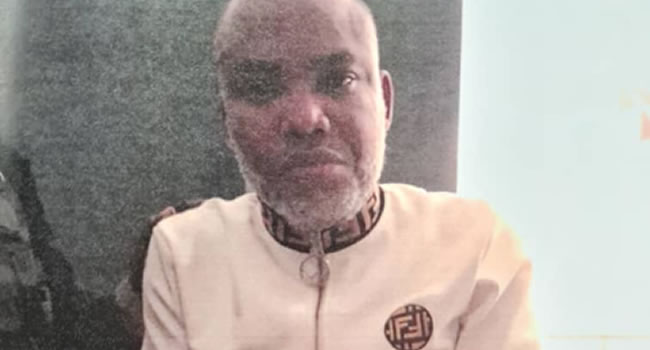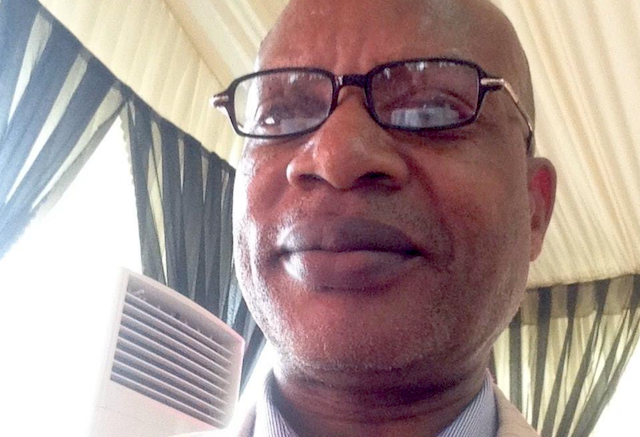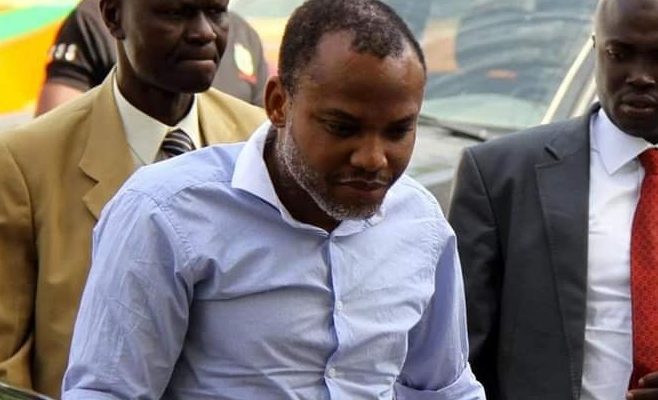Against the grain of widespread pleadings and expectation of concerned Nigerians, the Federal Government’s filed seven grounds of appeal to quash the October 13, 2022, Appeal Court’s judgment ordering the release of Leader of the Indigenous People of Biafra, Mazi Nnamdi Kanu.
Surely, the filing at the apex court is in keeping with the avowal of Attorney General of the Federation and Minister of Justice, Abubakar Malami (SAN), that the government would consider all available options on the judgment, and pursue the determination of pre-rendition issues.
The three Justices of the Appeal Court had “discharged and acquired” Kanu of the entire treasonable felony and terrorism charges preferred against him since 2015.
Though an Abuja Federal High Court had dismissed eight of the amended 15-count charge, the remaining seven counts before the Court of Appeal in Abuja were on the alleged abduction of Kanu from Kenya in June 2021.
The Appeal Court’s ruling says: “By engaging in utter unlawful and illegal acts and in breach of its own laws in the instant matter, the Federal Government did not come to equity in clean hands and must be called to order.
“With appalling disregard to local and international laws, the Federal Government has lost the right to put the appellant on trial for any offence. (Emphasis mine).
“Treaties and Protocols are meant to be obeyed. No government in the world is permitted to abduct anybody without following due process of extradition.
“Nigeria is not an exception or excused. Nigeria must obey her own law and that of international, so as to avoid anarchy.”
On the basis of the above, the Appeal Court ordered the immediate release of Kanu from his long incarceration at the facility of the Department of State Services in Abuja.
It’s doubtful if Malami had a certified true copy – unless he’s availed in advance of the ruling – before pouring cold water on the verdict, arguing the court didn’t acquit Kanu.
Vowing government’s continued charges against Kanu, Malami, via an official spokesman, Umar Jibril Gwandu, said: “For the avoidance of doubt and by the verdict of the Court, Kanu was only discharged and not acquitted.
“Consequently, the appropriate legal options before the authorities will be exploited and communicated accordingly to the public.
“The decision handed down by the court of appeal was on a single issue that borders on rendition. Let it be made clear to the general public that other issues that predate rendition on the basis of which Kanu jumped bail remain valid issues for judicial determination.
“The Federal Government will consider all available options open to us on the judgment on rendition while pursuing determination of pre-rendition issues.”
Some of the issues government pushes at the Supreme Court are:
*The Appeal Court erred by holding that, based on the rendition, the trial court has no jurisdiction to try Kanu * There’s no evidence led at the trial and appellate courts on the rendition
*The court misdirected itself by relying heavily on foreign decided cases on terrorism and human rights as against those of the criminal procedure in Nigeria
*The court erred by discharging Kanu on counts 1, 2, 3, 4, 5, 8 and 15 on terrorism charges retained by the trial court for want of jurisdiction
*The court was silent and closed its eyes to the issues that predate Kanu’s rendition.
Correspondingly, the Federal Government prays the Supreme Court to:
*Set aside the Appeal Court judgment, and restore the charges at the trial court
*Stay execution of the ruling until the final determination of its appeal
*Refuse Kanu bail, as he’s a “flight risk person.”
The government’s hasty appeal against the Appeal Court judgment represents a classical case of “the more you look, the less you see” – indicating an apparent resolve to keep Kanu out of circulation throughout the duration of the administration of President Muhammadu Buhari.
Kanu’s five counts peaked at 15 after he jumped bail in 2017 and was arrested in June 2021 in Kenya, and flown back to Nigeria at the behest of the government.
The trial Federal High Court in Abuja subsequently struck out eight of the charges, leaving seven counts, which Kanu appealed to the Appeal Court that trashed the charges.
Ipso facto, there’re no longer charges against Kanu, and government could only maintain a cause of action by appealing the Appeal Court judgment or initiating fresh and unknown charges against Kanu, and that would leave the realm of prosecution to persecution of the detainee.
But amid criticisms against government’s plan to sustain Kanu’s trial, Malami reportedly floated a “political solution” to the impasse: the South-East governors should go and beg Buhari to unconditionally release Kanu, as if the governors had instigated Kanu’s alleged offences.
If not as a tool of official blackmail, why should it be the governors’ burden to surety Kanu who, with members of the IPOB, had routinely blamed the governors for alleged connivance to scuttle the agitation for Biafra?
Recall that following Malami’s prior remarks, former Anambra Sate Governor Chukwuemeka Ezeife expressed readiness to “kneel or prostrate” for Buhari to free Kanu.
“If President Buhari wants me to kneel down, I’ll kneel down. If he wants me to prostrate, I’ll prostrate just for Nnamdi Kanu to be released,” Dr Ezeife had pledged in an interview on Arise News morning show on October 17.
He said the release of Kanu “will address protests, agitation and the sitting-at-home in the South-East,” adding that Igbo elders would welcome negotiation “to ensure Kanu’s release and peace in the South-East.”
In any case, South-East leaders, including the governors, had met Buhari – in Abuja or in the South-East during his visits – and written series of letters on the Kanu matter, with the president repeatedly telling them that his hands were tied by the legal web entangling the detainee.
In other words, were the courts to set Kanu free, Buhari and the Federal Government would’ve no justification to incarcerate him to face further charges or trial.
Alas, the opportunity of good faith came on October 13 via the Appeal Court ruling, which discharged Kanu from the remaining seven of 15 charges against him since 2015! But the authorities have shunned that window!
The Appeal Court dress-down of the government – for violating both its own and international laws, to breach Kanu’s fundamental human rights – would sober any administration to avoid further pontification.
So, rather than continue Kanu’s detention and trial, President Buhari should seize the lucky chance the Appeal Court ruling offers to redeem his administration’s image.
To act otherwise strengthens the allegation that Kanu’s ordeal is part of an “unfinished business” to marginalise the South-East for its aborted “Republic of Biafra” in 1967, and the resultant Nigerian Civil War from 1967 to 1970. Government must dispel this alleged ill-motive against the people of the South-East!
*Mr Ezomon, Journalist and Media Consultant, writes from Lagos, Nigeria.


